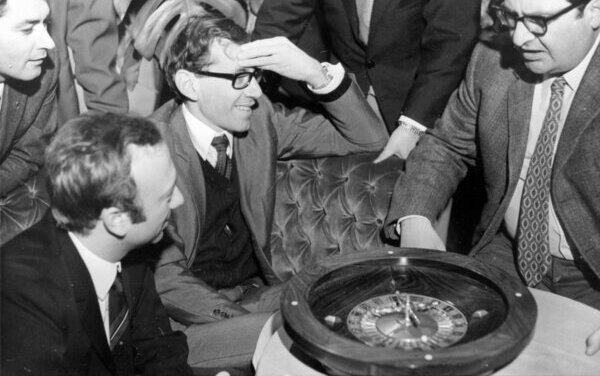The Professor Who Conquered Roulette: The Richard Jarecki Tale

The world of gambling is full of tales – from outrageous luck to masterful strategies that defy the odds. Among these stories stands the legendary account of a professor who, with a mix of brilliance and dedication, managed to beat one of the most iconic casino games: roulette.
Bet on 100 thousand
It’s one thing to walk into a casino with a few chips and walk out with double the amount. However, it’s entirely another ballgame to consistently make winnings in hundreds of thousands, especially on a game based heavily on luck. Richard Jarecki did not just make occasional windfalls; he turned the tables on casinos, amassing over $1.2 million (equivalent to over $8 million today) throughout the 1960s and 1970s – primarily from roulette.
The Richard Jarecki Story
Born in Germany and later a resident of the United States, Dr. Richard Jarecki wasn’t your ordinary gambler. He was a research doctor with a penchant for statistical analyses. Jarecki’s initial tryst with roulette was not as a player, but as a researcher. His doctorate work involved studying how to predict where the ball would land on a roulette wheel, a topic he would continue to research long after earning his degree.
But Jarecki wasn’t content with mere theoretical predictions. He took his studies to the field, frequenting the casinos of San Remo, Monte Carlo, and Las Vegas. Along with his wife, Jarecki began recording thousands of spins and their outcomes. The pair would often spend hours at the roulette table, carefully noting down each spin’s outcome without placing a bet, much to the bewilderment of fellow players and casino staff.

Richard Jarecki’s Strategy
At the core of Jarecki’s strategy was the principle of “biased wheel” play. Through meticulous observation and recording, Jarecki deduced that no two roulette wheels were the same. Slight imperfections in their construction and wear and tear from regular use could introduce biases that made certain numbers more likely to come up.
By collating vast amounts of spin data from individual wheels, Jarecki could identify these biases and make calculated bets. His strategy was so effective that casinos across Europe would tremble when they saw him walk through their doors. Recognizing the threat he posed to their profits, several casinos even went to the lengths of switching roulette wheels between tables and, in extreme cases, banning Jarecki outright.
But the professor’s legacy remains intact. Richard Jarecki showcased to the world that with enough dedication, observation, and analysis, it was indeed possible to “beat” a game that many deemed purely chance-based.
